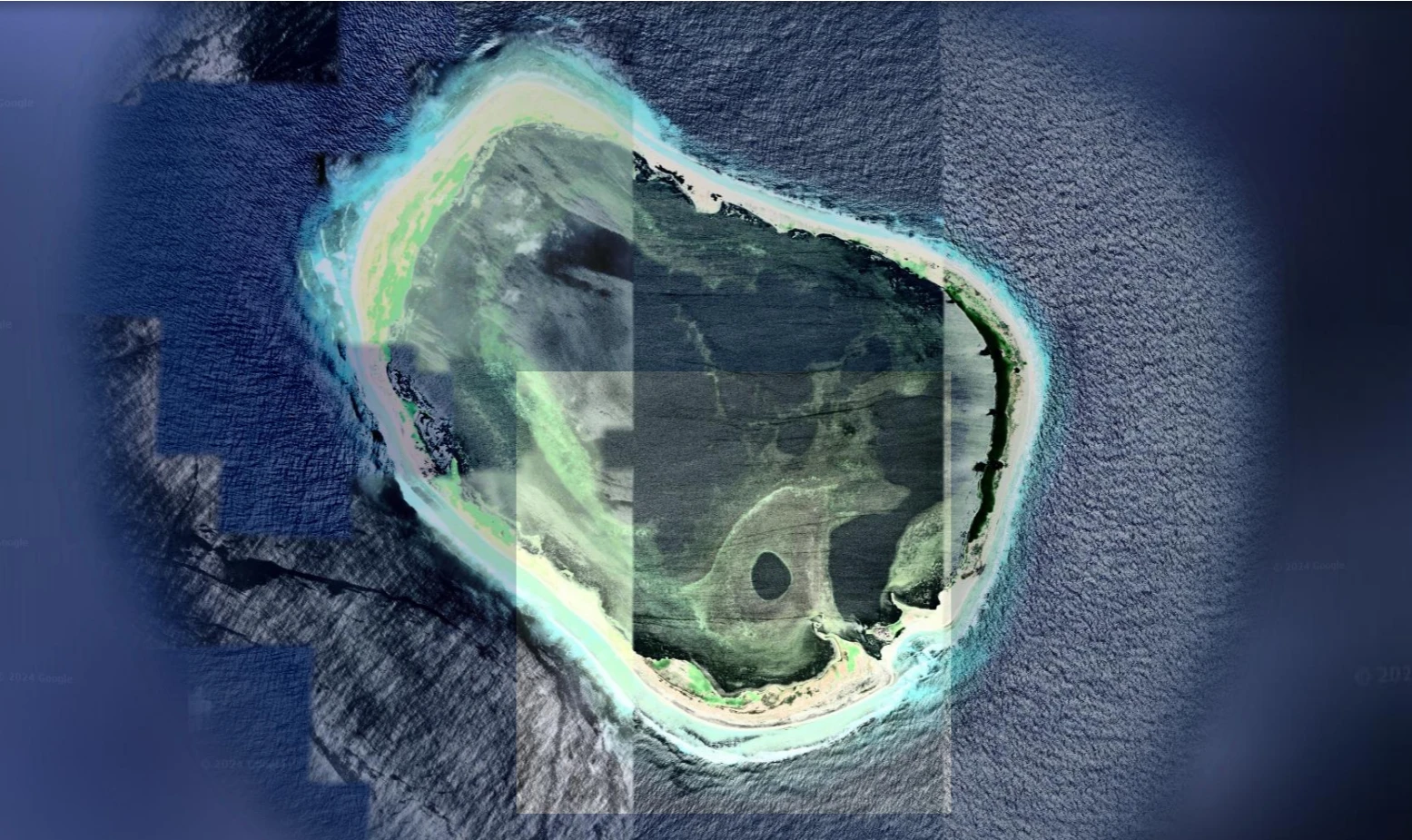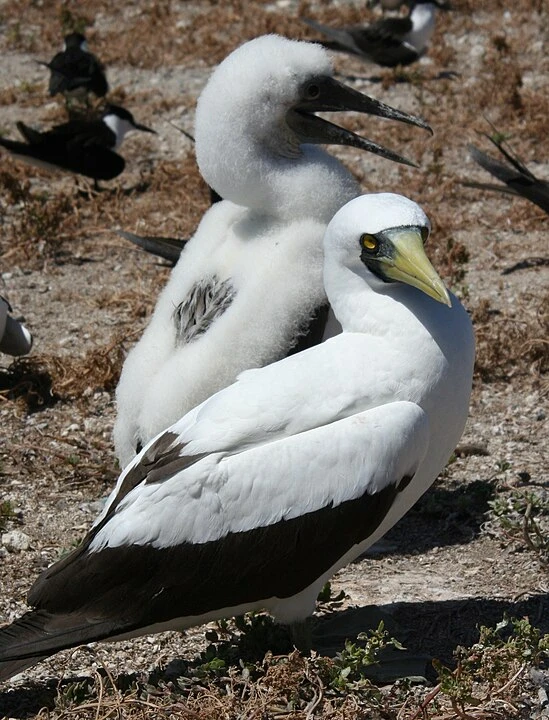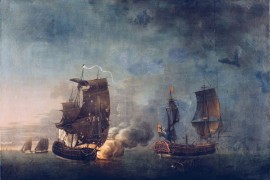Clipperton: nothing and far away
Clipperton Island, also known as "Passion Island", is a tiny piece of France lost in the middle of the Pacific, more than 1,200 kilometers from the coast of Mexico. Discovered by French explorers in the 18th century, this island immediately conjures up dreams with its name... but the reality is a little less glamorous. Clipperton is an isolated, flat, treeless island, and surrounded by fearsome reefs that make docking difficult. In short, a little corner of paradise... for masked madmen (birds, not adventurers). A little bonus, though: its lagoon is the only freshwater lagoon in the world. It's fresh to a depth of 6 metres, but with a strange taste. The bottom of the lagoon is so deep that we don't know how deep it goes. Commandant Cousteau himself failed to explore it. By the way! It's also called Clipperton because the pirate John Clipperton hid his treasure there in 1704;
Satellite view of clipperton island / photo chosen by monsieur de France: google earth
So why is France so keen on Clipperton Island?
In 1858, France officially laid claim to Clipperton, but its isolation eventually attracted Mexico, who settled there at the beginning of the 20th century to exploit... guano! At the time, bird droppings were highly sought-after as fertilizer. Life there, between crabs and sparse coconut palms, turned out to be harsh: lack of drinking water, intense heat and sheer boredom. Soon, the Mexican settlers, between survival and madness, abandoned the island after just a few years. In 1931, after a protracted dispute, France officially reclaimed this small piece of rock;
Masked madmen can be found on the island / Photo chosen by Monsieur de France: By Duncan Wright, USFWS - Own work, Public Domain, https://commons.wikimedia.org/w/index.php?curid=866140
Today, Clipperton is uninhabited, (although I hear it's used as a relay point for a fair amount of trafficking), but it's not without interest. Ecologically, it's a veritable natural laboratory, with a lagoon stocked with rare fish, colonies of birds such as frigatebirds and masked boobies, and an army of red crabs that cover the ground en masse. Because of its isolation, Clipperton is invaluable for studies on biodiversity and the impact of climate change, and regularly attracts scientific expeditions.
The island also plays a strategic role for France. Its position in the Pacific guarantees the country a Exclusive Economic Zone of 435,000 km², where maritime resources (particularly fisheries) are protected by occasional military patrols. But beyond the economic stakes, Clipperton is also a fascinating symbol of isolation and survival, a small (almost) lost paradise, both harsh and fascinating, where even the most daring explorers think twice before disembarking.





